2025.1.31 Dalit Student Death: Four Professors And Principal Booked, Detained
A day after a 19-year-old Dalit BHMS student died by suicide, five of the college, including the principal, were detained on Thursday.
A first-year student of BHMS at the Basna Merchant College in Bahucharaji of Mehsana allegedly died by suicide in her hostel room on Wednesday.
According to the reports, the girl took her own life due to the persistent mental and physical harassment by four professors and lack of action from the college principal, who allegedly referred to it as ‘part of education’.
After the victim’s father filed an FIR naming the professors and the principal, the four, V S Rao Vasnik, Prashant Nuval, Y C Bose, and Dr. Sanjay Reethe along with Principal Kailash Patil, were booked for abetment to suicide. They all have been detained for questioning by Mehsana Police.
Milap Patel, DySP of Mehsana, said, “ The accused have been booked for abetment to suicide under the Bharatiya Nyaya Sanhita and the Scheduled Caste and Scheduled Tribe (Prevention of Atrocities) Act and have been detained for questioning.”
Around 1:30 pm on Wednesday, the complainant received an urgent phone call from his daughter’s hostel mate, informing him that she was being taken to Mehsana Civil Hospital following a suicide attempt.
Upon arriving at the hospital, he and his wife found their daughter lying dead on a stretcher in the trauma centre.
In the FIR, he stated that foul play could not be ruled out, citing red marks around her neck and bruises on her body.
The girl reportedly narrated to her father that the professors frequently insulted her, gave her excessive academic work, forced her to stand for long hours, and inappropriately touched her under various pretexts. Additionally, the college’s principal allegedly dismissed her grievances, stating that enduring such treatment was a part of education, stated the FIR.
Meanwhile, calling on authorities to take strict action against those responsible for his daughter’s death, the complainant alleged while talking to local media in Mehsana that her caste was a factor in the mistreatment she endured at the institution.
2025.1.30 Ahmedabad Crime Branch Busts Rs 7 Cr Payment Gateway Scam; Three Arrested
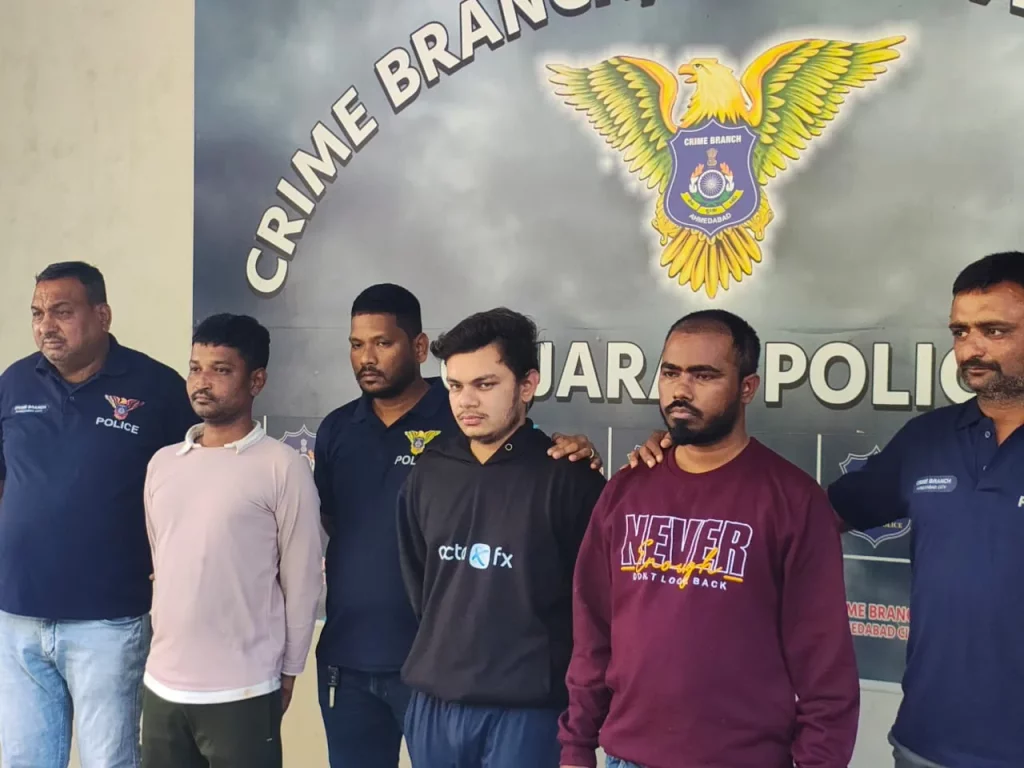
The Ahmedabad Crime Branch has arrested three individuals in connection with a cybercrime syndicate that exploited security testing software to hack into e-commerce websites and manipulate online betting platforms. The gang used these illegal methods to purchase products at reduced prices and engage in rigged gambling activities to increase their illicit earnings.
The accused are identified as Vijay Vaghela, the alleged mastermind behind the operation, Nitesh alias Chhotu, who handled the resale of the fraudulently obtained products, and Adil Parmar, accused of manipulating casino betting websites to place rigged bets.
Following their arrest, authorities confiscated a range of electronic devices and valuables, totalling over Rs three lakh in value.
Deputy Commissioner of Police (DCP) Crime Ajit Rajian said, “Among the seized items were an Apple iPhone 16 Pro Max (Rs 1.25 lakh), a gaming laptop (Rs 3.1 lakh), a Samsung Z Fold 4 mobile (Rs 40,000), smartphones, hard disks, SSD drives, Wi-Fi routers, and receipts for gold jewellery purchased from PNG Jewellers.”
A senior official told Vibes of India that the gang is believed to have used debugging software to compromise the payment gateway systems of targeted e-commerce platforms.
“By manipulating payment responses, they were able to acquire expensive products at a fraction of their actual cost. These goods were then resold for profit, defrauding businesses of an estimated Rs 7 crore,” the official said.
In addition to their e-commerce fraud, the syndicate also targeted online betting websites. Using fraudulent techniques, they rigged results to predict outcomes and place manipulated bets, further boosting their illegal profits.
How Did They Operate?
The crime was carried out using sophisticated cyber techniques, including the identification of vulnerabilities in e-commerce and betting websites through online tools, manipulation of transaction details during checkout, and altering price responses to pay far below the actual cost.
The gang also provided fake delivery addresses to claim products fraudulently and altered betting scripts to ensure favourable outcomes. “The fake delivery addresses were generally of the areas surrounding Ahmedabad. They used to secretly operate in a closed mobile shop at night,” an official confirmed to VOI.
The gang primarily targeted jewellery and casino websites, including www.pngjewellers.com, robu.in, and Flipkart.com, as well as other unnamed e-commerce and betting sites.
Authorities are continuing their investigation, as they suspect there may be additional victims and accomplices yet to be identified.
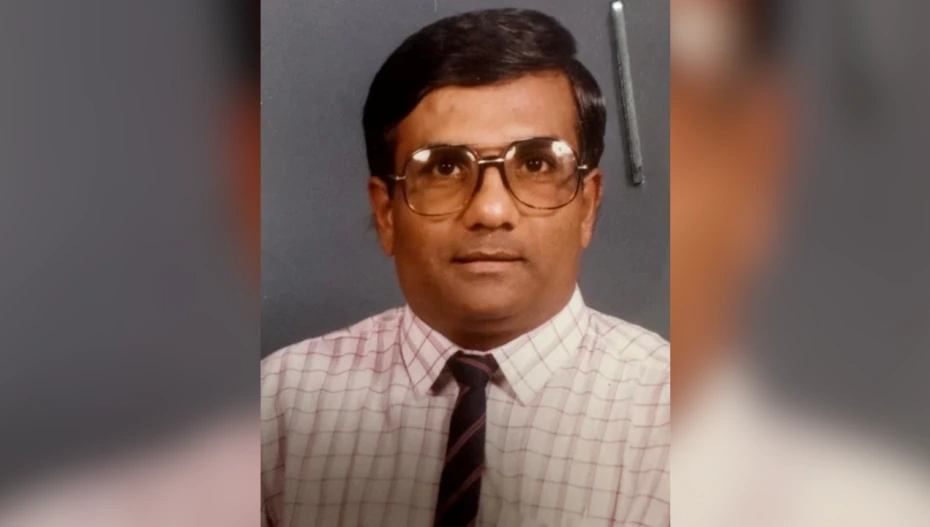
Fugitive banker Virendrabhai Patel, accused of orchestrating a Rs 77 crore fraud, was extradited to India after more than two decades on the run. He arrived at Sardar Vallabhbhai Patel International Airport (SVPIA) on Wednesday, where he was immediately taken into custody by authorities.
Patel, the former director of Charotar Nagrik Sahakari Bank in Anand, is alleged to have committed financial fraud in 2002 along with his associates.
He was charged with criminal breach of trust, forgery, and conspiracy before fleeing the country. In 2004, the Central Bureau of Investigation (CBI) secured an INTERPOL Red Notice against him. Despite international efforts, he evaded arrest in the United States for nearly 20 years.
His extradition was the result of coordinated efforts by the CBI, Gujarat Police, and immigration officials.
“This successful extradition underscores India’s commitment to bringing economic offenders to justice,” a senior CBI official said.
Authorities have intensified efforts in recent years to track down financial fugitives globally. Since 2021, INTERPOL coordination has led to the return of over 100 fugitives to India.
Law enforcement officials reiterated that economic offenders cannot escape justice by crossing borders.
“This case demonstrates that no place is beyond the reach of the law,” an official from the Ministry of Home Affairs told a section of the media.
Patel is expected to face trial in India, where legal proceedings will continue.
—

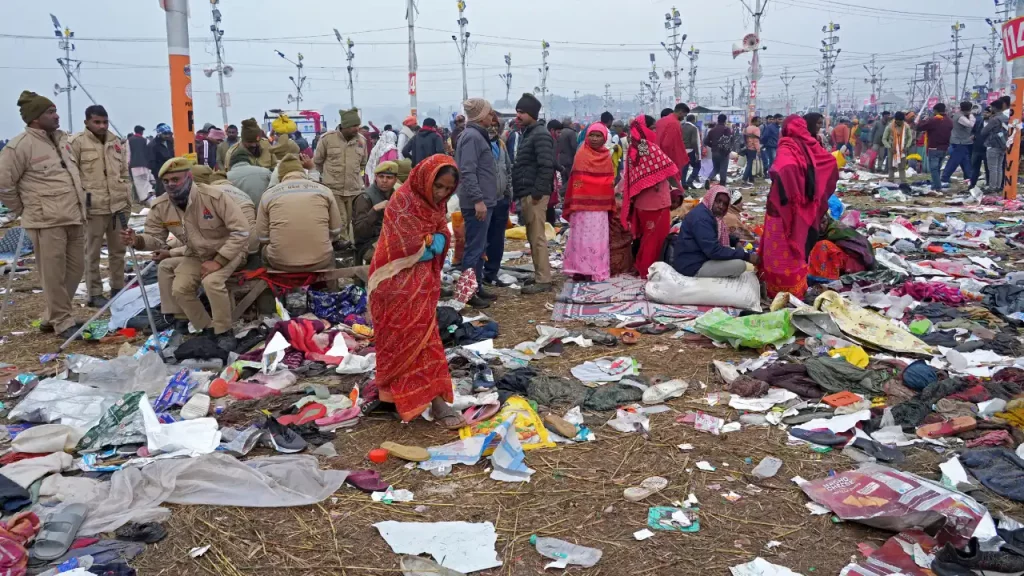
2025.1.29 At least 30 people were killed and dozens have been injured in a stampede at the Maha Kumbh Mela, one of the world’s biggest gatherings, authorities said.
The Maha Kumbh Mela takes place every 12 years in the Indian city of Prayagraj, about 90 miles west of the holy city of Varanasi in Uttar Pradesh, when an estimated 100 million people gather to bathe in holy river waters at the confluence of the Ganges, the Yamuna and the Saraswati rivers. It is considered one of the most auspicious and holy dates on the Hindu calendar.
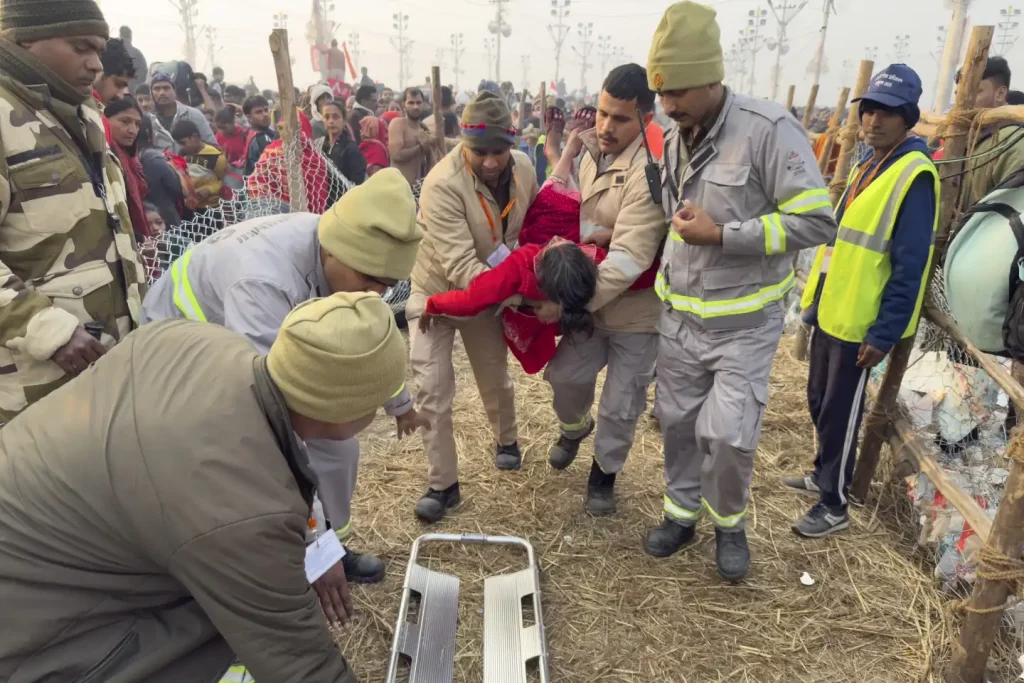
2025.1.29 At least 30 people were killed and many more injured in a stampede at the world’s largest religious gathering early Wednesday, police said, as millions of pilgrims rushed to dip in sacred waters during the Maha Kumbh festival in northern India.
Police officer Vaibhav Krishna in Prayagraj city said another 60 injured were rushed to hospitals.
Wednesday was a sacred day in the six-week Hindu festival, and authorities expected a record 100 million devotees to engage in a ritual bath at the confluence of the Ganges, the Yamuna and the mythical Saraswati rivers. Hindus believe that a dip at the holy site can cleanse them of past sins and end the process of reincarnation.
The stampede happened when pilgrims tried to jump barricades erected for a procession of holy men, Uttar Pradesh state’s top elected official, Yogi Adityanath, said in a televised statement.
The event’s main draw is the thousands of ash-smeared Hindu ascetics who make massive processions toward the confluence to bathe.
Indian authorities took more than 16 hours to release casualty figures, even as Prime Minister Narendra Modi acknowledged the loss of lives, calling the incident “extremely sad” and extending his condolences.
“Suddenly there was pushing in the crowd, and we got trapped. A lot of us fell down and the crowd went uncontrolled,” the Press Trust of India news agency quoted pilgrim Sarojini as saying. “There was no chance for escape, there was pushing from all sides,” she said.
Distressed families lined up outside a makeshift hospital, desperate for news of missing loved ones. Clothes, blankets and backpacks were strewn around the site of the stampede.
Millions continued to throng the 4,000-hectare (15-square mile) pilgrimage site despite the stampede, even as police urged them over megaphones to avoid the confluence. Adityanath urged people to take baths at other riverbanks instead.
“The situation is now under control, but there is a massive crowd of pilgrims,” Adityanath said, adding that 90 million to 100 million pilgrims were at the site.
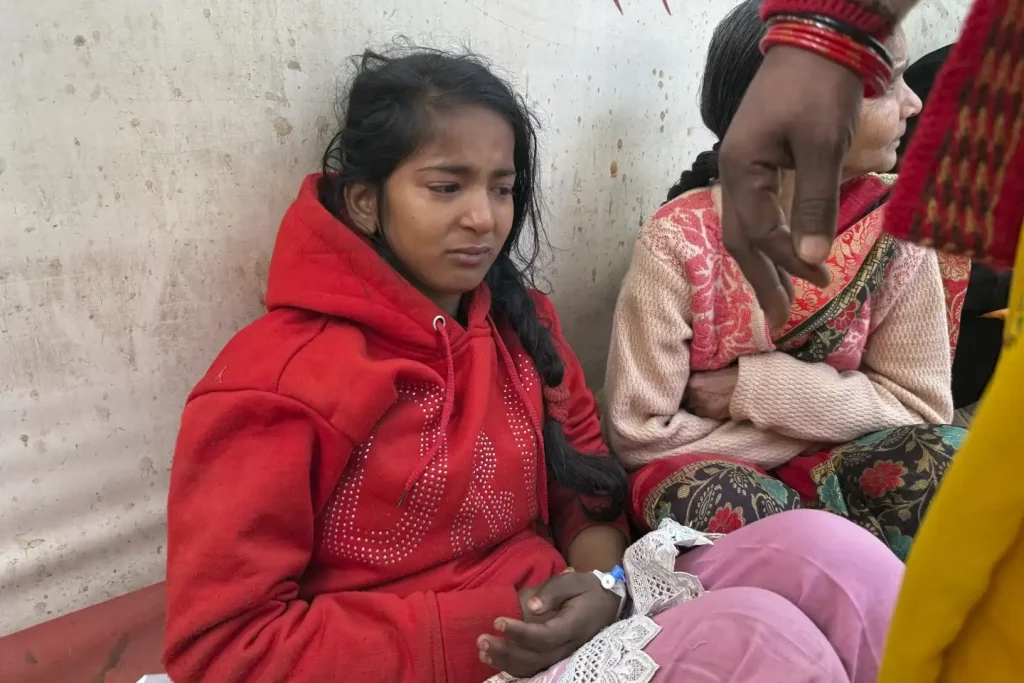
—
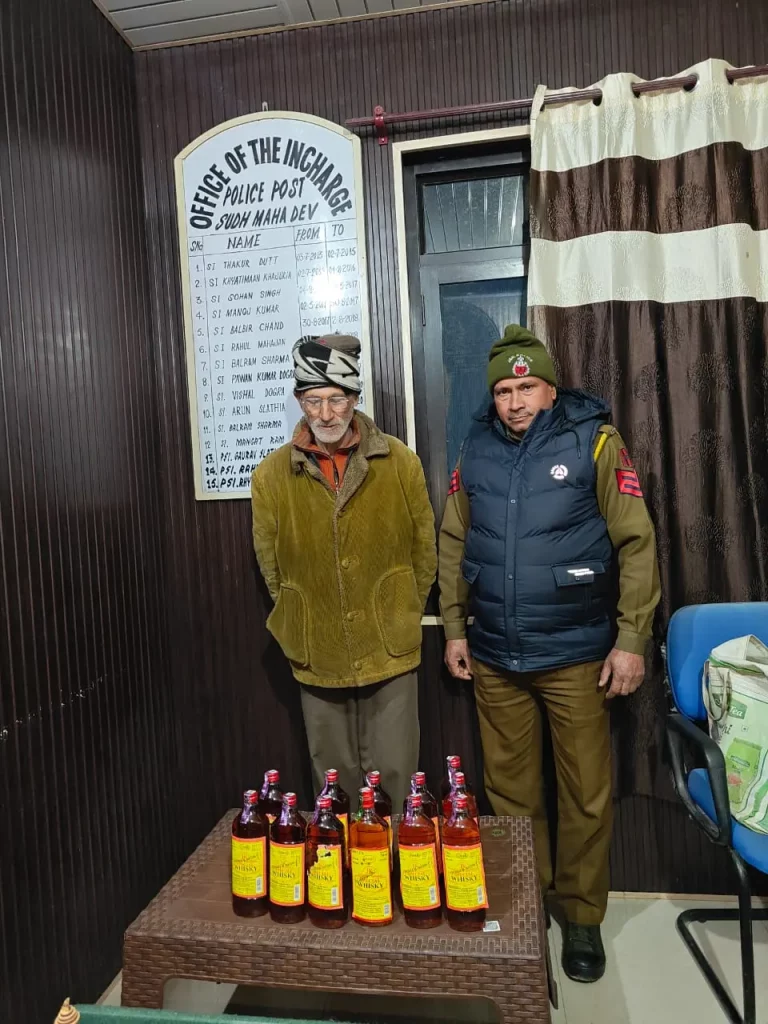
12 BOTTLES OF ILLICIT LIQUOR SEIZED; BOTTLEGGER NAMELY DEV RAJ S/O PREM NATH R/O BACHHAL, CHENANI ARRESTED BY DISTRICT POLICE UDHAMPUR
2025.1.22 Hotel booking fraud to sextortion: 15 cyber criminals arrested in Nuh
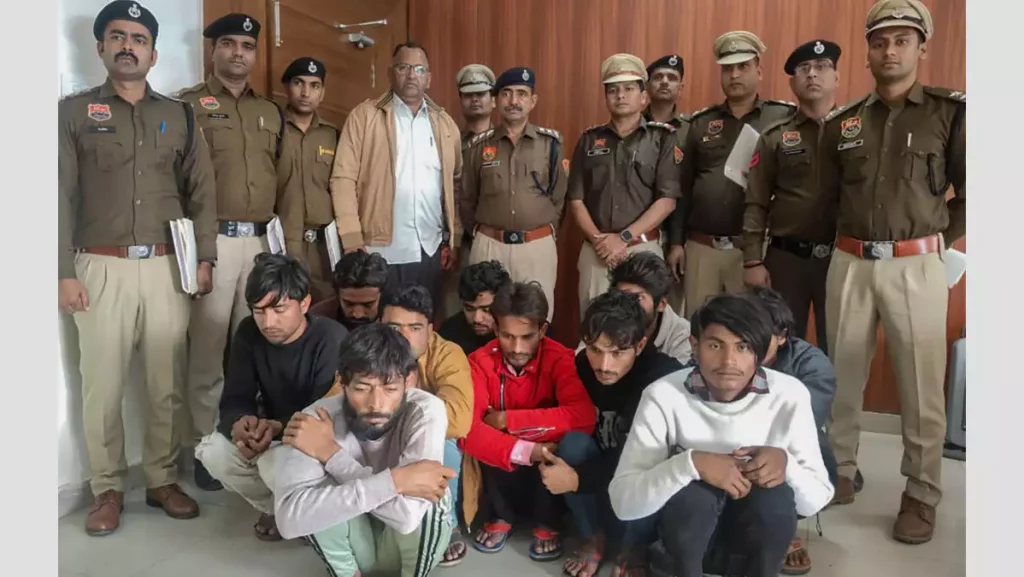
Gurgaon: Around 15 cyber fraudsters were arrested by Nuh police in different cases during a two-day special operation.
The fraudsters would cheat people through social media by posting fake advertisements for hotel bookings, sextortion and posing as holders of fake gold coins.
The accused were apprehended from various locations such as Palla, Saunkh and Nai villages and near the Nuh Hodal Road Mumbai Vadodara Expressway area.
A Nuh police spokesperson said different teams carried out operations on Tuesday and Wednesday in a special campaign, adding, “12 different cases were filed against the fraudsters”.
The accused created several accounts with fake identities on social media platforms and posted advertisements for hotel bookings, claiming to have Mughal-era gold coins.
Besides, the accused were also involved in sextortion, wherein from their fake accounts, they made video calls and created obscene videos of people, threatening to make them viral and extorted money and transferred it into different bank accounts.
“All the accused are under 30 years and two of them are illiterate still they were experts in cyber fraud,” police said.
The accused had cheated people from across the country.
“The police are trying to find out the amount of money cheated by these people and for how they were engaged in cyber fraud,” they said.
Elaborating about the modus operandi, police said, “The accused have made several fake profiles on social media. They used to post advertisements on social media and once people called on the number, they would trick them to transfer money in their account. After cheating a few people, they would delete the account and create new advertisements. The accused had also made fake Mughal-era gold coins and bricks. They used to post advertisements claiming to have discovered these coins and bricks during digging and lure people with lucrative deals.”
These suspects are being interrogated for further leads, said police in a statement.
The accused have been identified as Ghaffar from Badarpur, Irshad from Nai, Aslam from Ghata Shamshabad, Shabir from Bawla, Mohammad Kaif from Pathkhori, Ajaaz from Bangar Nangla Utaav, Shahrukh from Sunari, Sohil from Sakras, Rashid from Pachanka, Shoaib from Bisru, Arman from Gulpara, Anis from Naheda, Munfed from Sunheda, Salim from Nai and Salman from Gulpara.
During the interrogation, the accused revealed that Arman was providing them with mobiles and SIMs issued from Uttar Pradesh and other states for use in cybercrimes.
Twenty mobile phones, 29 SIM cards, 250 counterfeit gold coins (Mughal-era Ashrafis) and one fake gold brick were recovered.
Nuh, also known as “New Jamtara,” is a breeding ground for cyber fraudsters.
Nuh police have been conducting special drives from time to time to crack down on the cyber fraudsters.
In April 2023, Haryana police had conducted the biggest raid against cybercrime in Nuh in which as many as 102 police teams comprising more than 5,000 police personnel had raided 14 villages in the district together and seized digital gadgets, including ATM cards, smartphones, laptops, Aadhaar cards and ATM swipe machines along with other items.
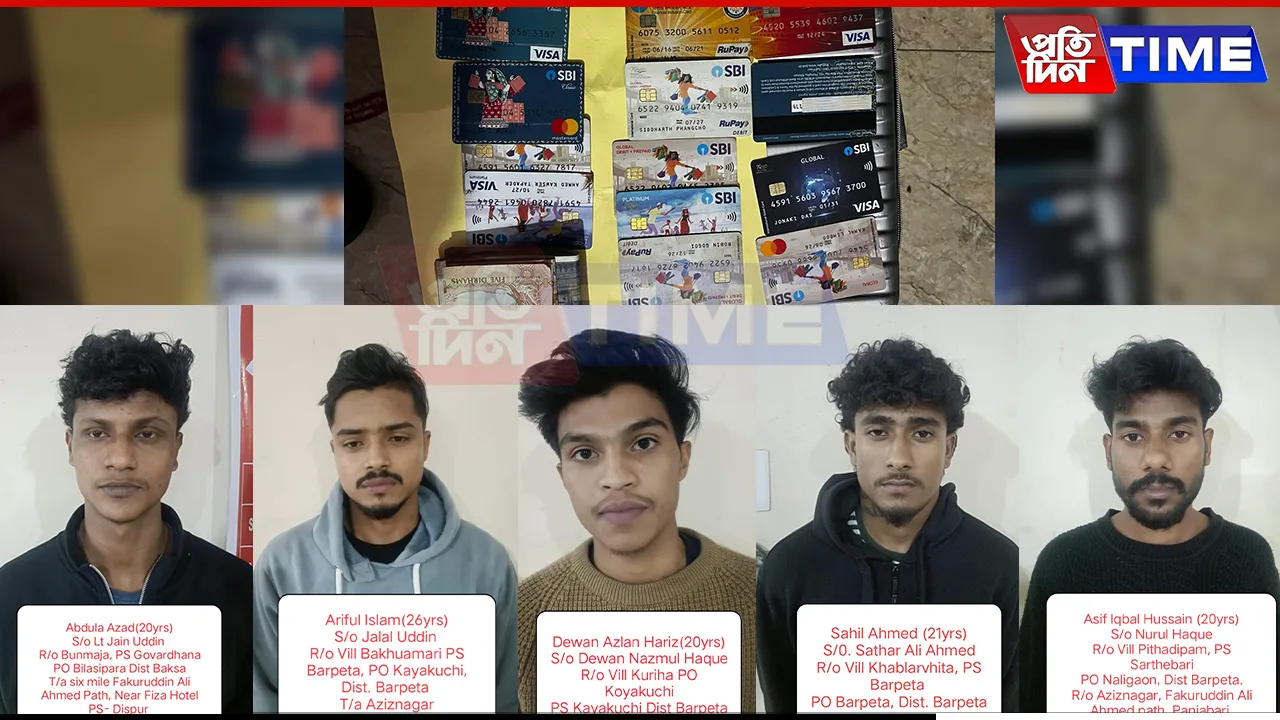
2025.1.21 Guwahati Police Bust Major ATM Fraud Racket, Five Arrested
During the operation, police seized 17 ATM cards from various banks, two motorcycles, and two iPhones, which were allegedly used in fraudulent activities.
The arrested individuals have been identified as Asif Iqbal Hussain, Sahil Ahmed, Ariful Islam, Dewan Azlan Haris, and Abdul Azad.
During the operation, police seized 17 ATM cards from various banks, two motorcycles, and two iPhones, which were allegedly used in fraudulent activities. The gang is suspected of tricking unsuspecting customers and withdrawing money illegally using stolen or cloned ATM cards.
Police believe the arrested individuals may be part of a larger network involved in financial fraud.
Further investigation is on.
Last year, a police team from Gorchuk Police Station in Guwahati city, led by Inspector Mayurjit Gogoi, raided a lodge at Boragaon which led to the discovery of a group of cyber fraudsters who were involved in criminal activities related to the operation of “Mule Bank Accounts.” These accounts were being used to transfer money looted by cybercriminals from unsuspecting victims.
Preliminary investigations revealed that the accused persons targeted needy individuals, convincing them to open current or savings bank accounts. They would obtain all related banking documents such as passbooks, ATM cards, and cheque books, promising a handsome profit in return. After collecting these documents, the gang would hand them over to another group involved in cybercrimes.
Each account opened in this manner fetched the fraudsters INR 1,00,000, while the account holder received 20% of the total amount transacted.
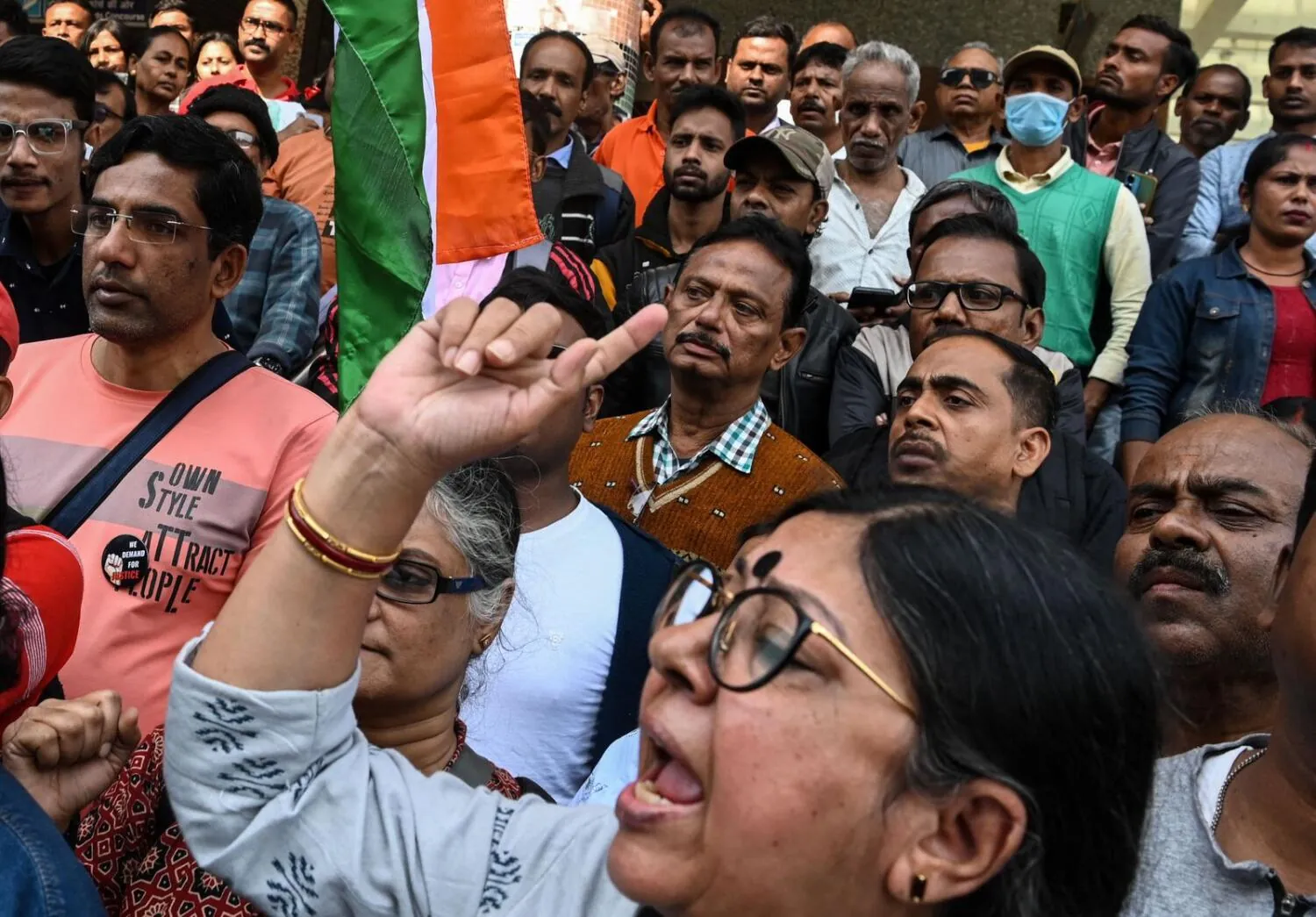
2025.1.21 Indian state contests life sentence of murder, rape convict, seeks death, source says
The brutal killing sparked national outrage over the lack of safety for women and protests to demand justice and better security at public hospitals
India’s West Bengal state launched an appeal on Tuesday to overturn a life sentence in favour of the death penalty for a police volunteer convicted of the rape and murder of a junior doctor, a senior lawyer aware of the development said.
The brutal killing sparked national outrage over the lack of safety for women and protests around the country by medics to demand justice and better security at public hospitals.
The state government run by the regional Trinamool Congress party filed the appeal at the Calcutta High Court, the lawyer said, declining to be identified because he was not authorised to speak to the media.
The woman’s body was found in August in a classroom at the state-run R G Kar Medical College and Hospital in Kolkata, where she worked.
In convicting Sanjay Roy, Judge Anirban Das turned down a plea by prosecutors for the death penalty, saying he did not consider it a rare crime that might warrant capital punishment. He sentenced Roy on Monday to life in jail on counts of rape and murder.
Mamata Banerjee, chief minister of West Bengal, of which Kolkata is the capital, said late on Monday that she was “shocked” by the judgement.
“I am convinced that it is indeed a rarest of rare case which demands capital punishment. How could the judgement come to the conclusion that it is not a rarest of rare case?!” Banerjee said in a post on the social media platform X.
Addressing a public rally about 350 km (215 miles) from Kolkata on Tuesday, Banerjee said her government was seeking the highest punishment in the case.
Roy has denied the charges and said he was framed. His lawyer said the defence would appeal against the conviction.
The parents of the junior doctor have said they are not satisfied with the investigation and suspected more people were involved in the crime.
2025.1.20 Sharon Raj murder case: Who is Greeshma, youngest woman to get death penalty in Kerala?
Greeshma wanted to end her relationship with Sharon as she was engaged to another man but Sharon refused, following which Greeshma conspired to kill him.
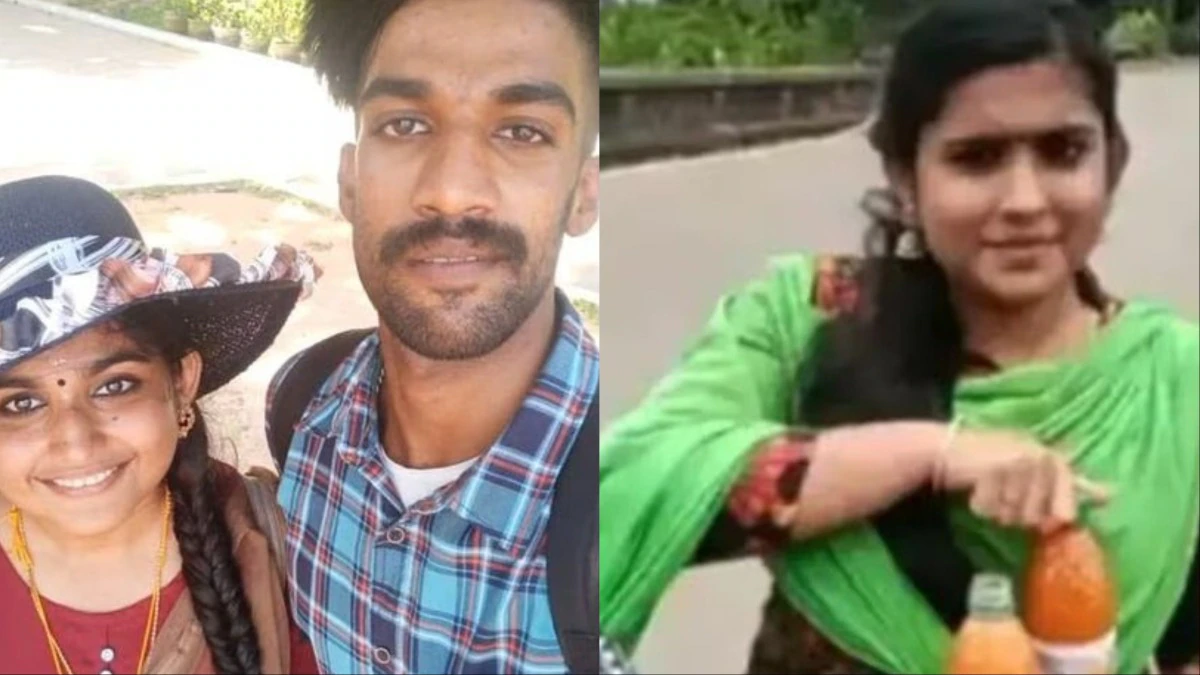
A 24-year-old woman, Greeshma, became the youngest woman to be awarded a death penalty in Kerala when the Neyyattinkara Additional Sessions Court pronounced her quantum of sentence on Monday in the Sharon Raj murder case. Greeshma was found guilty of poisoning her long-term boyfriend, Sharon Raj, using pesticide-laced herbal medicine in October 2022.
Greeshma was arrested on October 31, 2022, followed by her mother and uncle, who were involved in plotting the murder.
WHO IS GREESHMA?
Greeshma is a convict in Sharon Raj murder case.
She killed her boyfriend in the year 2022.
She was a literature student at a private college in Kanyakumari.
Greeshma remained under custody for nearly a year until the Kerala High Court granted her bail on September 25, 2023.
She is the youngest woman in Kerala to get death penalty.
WHAT IS THE SHARON RAJ MURDER CASE?
Greeshma studied literature at a private college in Tamil Nadu’s Kanyakumari district. The victim Sharon Raj, a native of Parassala in the Thiruvananthapuram district, was a final year BSc Radiology student at the same college. Both were in a close relationship for over a year.
Greeshma wanted to end her relationship as she was simultaneously engaged to another man but Sharon refused, following which Greeshma conspired to kill him.
On October 14, 2022, when Sharon visited Greeshma at Greeshma’s residence, she offered him an ayurvedic decoction, which she had laced with pesticide. Sharon consumed the concoction and over the next 11 days, he battled for his life in the ICU before succumbing to organ failure.
In his declaration to a magistrate, Sharon named Greeshma and revealed he had consumed herbal medicine provided by her. As he was suspicious of her action, he had even recorded a video of the drink before consuming it. Later, forensic analysis confirmed the presence of pesticide in the decoction, evidence of Greeshma’s role was found during further investigation.
The police filed a detailed charge sheet on January 25, 2023. Over 95 witnesses were examined during the trial, which began on October 15, 2024, and concluded on January 3, 2025.
WHAT ARE THE CHARGES AGAINST GREESHMA?
Special public prosecutor VS Vineeth Kumar charged that Greeshma wanted to end her relationship with Sharon as her family had arranged a marriage with another man from Kerala.
Later, Greeshma conspired with her uncle, Nirmalakumaran Nair, the third accused, and her mother to hatch a plan to kill Sharon. The court sentenced Nair to three years of imprisonment.
Greeshma faced multiple charges under the IPC, including:
Section 302: Murder
Section 364: Abduction with intent to commit murder
Section 328: Administering poison with intent to harm life
Section 203: Obstruction of justice by providing false information
WHAT COURT SAID
The judge said that Greeshma chose a time when her family was away and administered the poison in a way that made it difficult to detect. She had planned the murder carefully, taking every opportunity to deceive Sharon and ensure that her actions would remain hidden.
“This being a case of murder by administration of poison Greeshma has done it in utmost secrecy. She chose the time when her parents and uncle were away from home. Sharon had told PW2 that Greeshma has asked him to go there for sex. She had convinced him last night by lengthy call about their meeting. She took him into confidence with ulterior motive. Her, preparations for the commission of the offence were secret and deceitful”, the Judge added.
“It is the State’s responsibility to ensure punishment for criminal acts. Evidence such as Sharon recording a video of the suspicious juice, despite Greeshma asking him not to record, indicates that he suspected something was wrong. Sharon fought for his life for 11 days without even consuming a drop of water,” court said.
The court also noted that the convict’s claim of physical abuse from Sharon lacked proof.
“On the contrary, Sharon had never blamed her in any messages or communications. While Sharon remained committed to the accused, she was simultaneously in contact with her fiance,” the court said, noting that the convict’s age should not be considered in addition to the gravity of the crime committed.
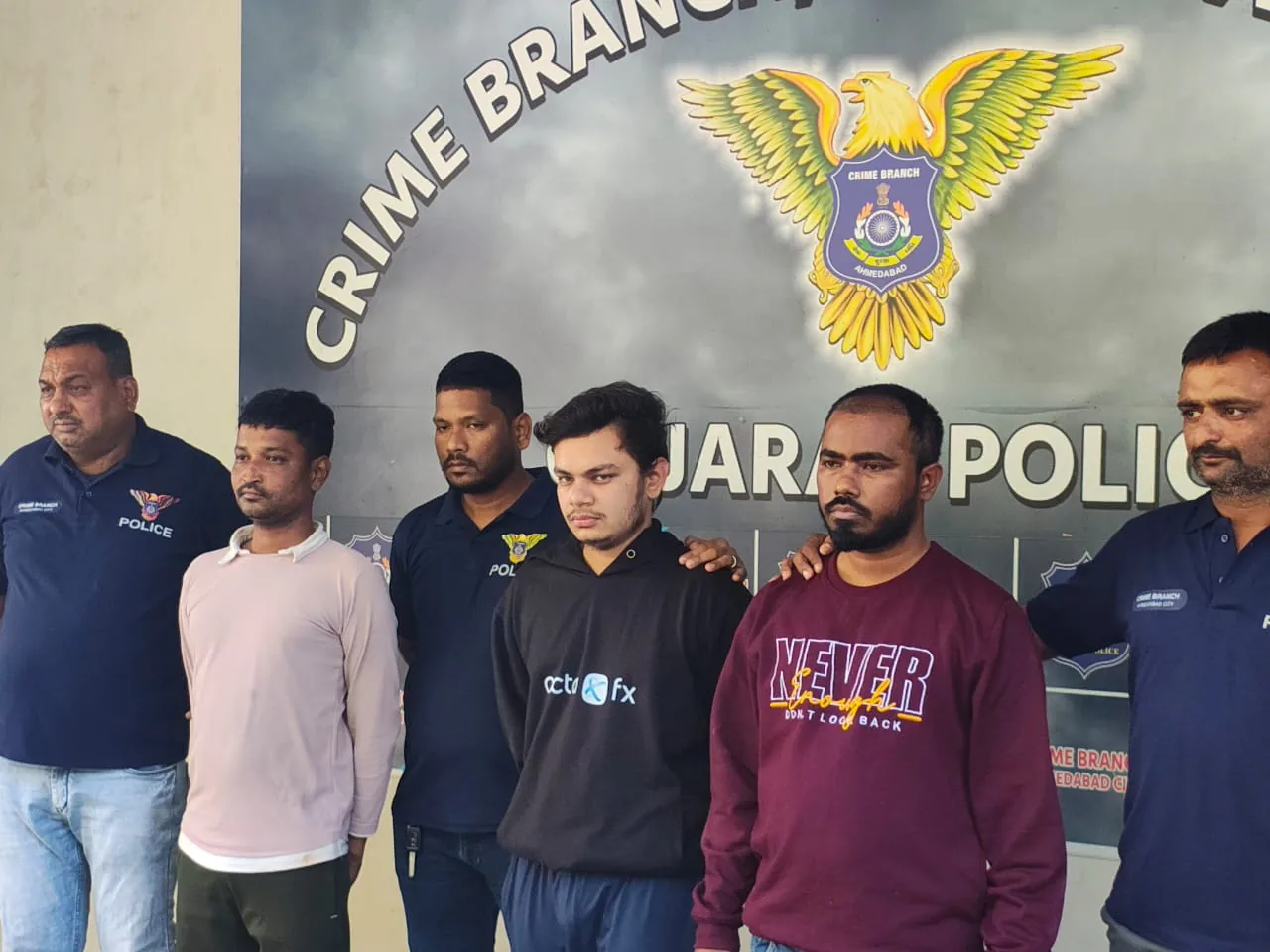
发表回复